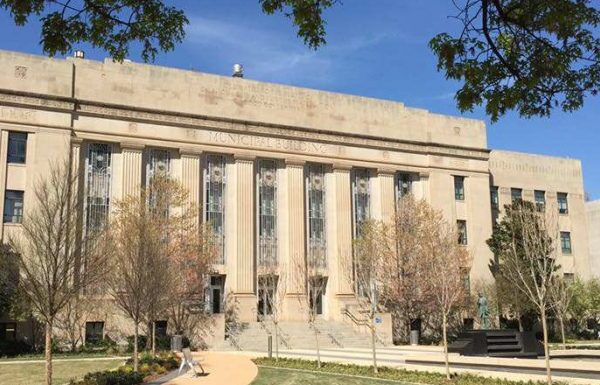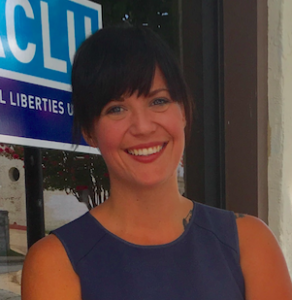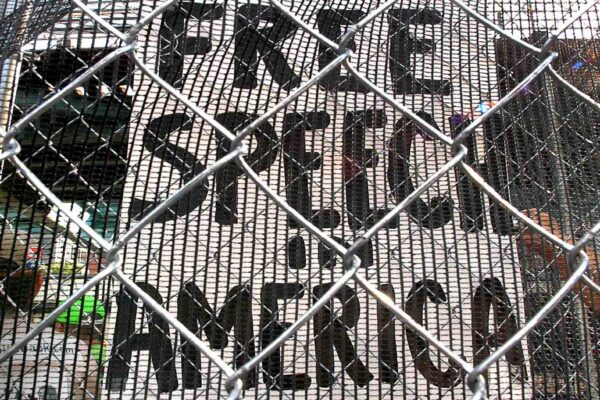What is the McCraw case about?
- The McCraw case is about protecting the freedom of speech for Oklahomans. In reaction to complaints about the visibility of panhandlers in Oklahoma City, the City Council passed an ordinance prohibiting virtually all activity on medians. Not only is the ordinance a superficial reaction to the systemic problem of poverty, but it is also an affront to the free speech rights of all those living in Oklahoma City.
- In their attempt to hide poverty’s uncomfortable truths, the City also prohibited many kinds of protected speech from the public square. Many political activists rely on medians to get their message out and to obtain signatures for petitions. Many candidates running for office use medians to display campaign signs. And many of our City’s most marginalized population depend on medians to request life-sustaining donations.
- The ACLU has sued the City to protect Oklahomans’ free speech rights in the public square.
Why is speech on medians so important?
- Public spaces like streets, medians, and sidewalks have long served as venues for public discourse. We will not cede that space now in exchange for streets free of the reminder of poverty. Rather, we will fight to protect the free speech rights of panhandlers and all those who live in Oklahoma City.
- Public medians, streets, and sidewalks are some of the only remaining platforms for truly free speech. One does not need to pay a fee, own a computer, or have access to wifi. These public spaces are available to all at no cost. Free speech must not become a luxury reserved only for those who can afford a platform, and the ACLU will fight to protect our nation’s long-standing tradition of free public discourse in public space.
What does this have to do with traffic safety?
- Sadly, this city ordinance has nothing to do with traffic safety. Once the City realized it was facing a lawsuit from the ACLU, they concocted a traffic safety justification in the hopes it would legitimize their unconstitutional ban of public speech on medians. What began as an explicitly “anti-panhandling” ordinance was rebranded as a “traffic safety” measure.
- The ordinance bears no relation to any traffic safety data and does nothing to make Oklahoma City’s streets safer for drivers or pedestrians. Rather, it is a disingenuous rebranding to avoid a lawsuit.
What is the difference between the ordinance as enacted and as revised?
- The ordinance as it was first enacted prohibited anyone from sitting, standing, or staying on a median that was less than 30 feet wide and less than 200 feet from an intersection.
- The ordinance as revised prohibits anyone from sitting, standing, or staying on a median located along a street with a speed limit of 40 mph or greater.
- While the original version pushed pedestrians away from intersections where vehicles are slowest but crossing at all directions, the revised version says nothing of intersections and pushes pedestrians away from higher-speed vehicles. The vast inconsistencies of and conflicting rationales for the different versions of the ordinance reveal the disingenuous nature of the traffic safety justification from the start.
- Additionally, the revised ordinance prohibits speech from many medians currently at the heart of public discourse in Oklahoma City. One such median is the space south of the Capitol building, a public space frequently used for core political speech.
- The ACLU remains dedicated to free speech rights in Oklahoma City and will fight to preserve the public square for the public discourse central to a democratic society and the survival of our community’s most marginalized population.
What is happening with the lawsuit now?
- The District Court found that the Ordinance is constitutional. We disagree and are appealing the decision. We look forward to defending our clients' free speech rights before the Federal Court of Appeals.
- Dean of Berkeley Law and renown civil rights attorney, Erwin Chemerinsky, has joined our legal team. We are thrilled to have the expertise of one of the nation's top constitutional law scholars as we seek to defend the freedom of speech in the public square.




